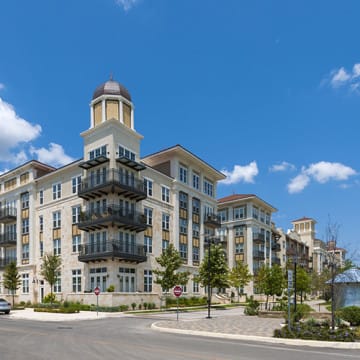Prescott Area Wildland-Urban Interface Commission
The Prescott Area Wildland Urban Interface Commission (PAWUIC) is a uniquely structured nonprofit that, with strong county and city support, is leading vegetation management and equitable funding programs to enhance wildfire resilience in Arizona.
Community members formed PAWUIC after the Dude fire in Payson, Arizona. A lightning strike ignited the Dude fire in June 1990 after a three-year drought and during a heatwave where temperatures reached as high as 122 degrees Fahrenheit. Among other impacts, the fire led to the deaths of six inmate firefighters. Separate from the work of the PAWUIC, their deaths led to the nationwide adoption of a new professional firefighting safety model known as LCES (for lookouts, communication, escape routes, and safety zones).
“It was decided afterwards that people who live here in the WUI area were not paying attention to the dangers,” says Bob Betts, longtime director of the PAWUIC. “Leaders from the Prescott National Forest, the city of Prescott, and Yavapai County all got together and said we ought to be more forward looking on what we should be doing.”
PAWUIC launched as a six-person grassroots nonprofit and has gradually developed into a well-established nonprofit staffed collaboratively by federal, state, city, tribal, business, and community volunteers. It has an annual operating budget of $300,000. Most of PAWUIC’s funding is from state Department of Forestry and U.S. Forest Service grants, but PAWUIC also participates as a partner on collaborative, multiyear grants from other sources.
WILDFIRE RESILIENCE STRATEGIES
PAWUIC’s focus is vegetation management and wildfire fuels reduction on public and private lands. Two such vegetation management projects that exemplify PAWUIC’s work are the Bradshaw Cross Boundary Project and Project Andrew.
“If you have the proper forestry stewardship, you can have beautiful forests that are not as dangerous.” – Bob Betts, Director, PAWUIC
The Bradshaw project encompasses the Prescott area, which includes about 141,156 acres in one of the largest wildland-urban interface (WUI) areas in the U.S. Southwest. The U.S. Department of Agriculture is providing $1.5 million for six local, state, and federal partners, including PAWUIC, to conduct fuels management. PAWUIC is partnering with the Prescott Fire Department to hand thin and remove fuels. Project Andrew was another collaborative effort designed specifically to help the community achieve Firewise recognition in honor of Andrew Ashcraft, one of 19 Granite Mountain Hotshot elite firefighters who died in 2013 while fighting the Yarnell fire. In collaboration with the Prescott Fire Department and Arizona Department of Forestry and Fire Management (AZ DFFM), PAWUIC conducted home wildfire assessments and tree thinning on 17 acres.
PAWUIC and the town of Dewey-Humboldt also worked together to create an innovative financing method for vegetation management for town residents with low incomes. Dewey-Humboldt is adjacent to the Prescott National Forest to the west and state forestland to the east and has two Firewise USA–recognized communities within its boundaries. In addition, the Blue Hills area of town is extremely high risk with only one feasible entrance and exit route in the event of an evacuation for 650 residential properties. Most of the homes are made of flammable building materials and are surrounded by grasses and highly flammable bushes.
To conduct risk mitigation in Dewey-Humboldt, PAWUIC won a $250,000 wildfire hazardous fuels grant from AZ DFFM that is structured as a 90/10 percent split. Homeowners provide 10 percent upfront to begin the risk reduction work. A representative of Dewey-Humboldt Firewise then inspects the property to ensure the abatement is correctly completed and submits a confirmation to the town for review. Dewey-Humboldt advances the remaining 90 percent of the money to the homeowner to pay the abatement contractor, and PAWUIC reimburses the town for that expense.
“The town acts like a bank but charges no interest and is only out of pocket for three to four months,” says town council member Vickie Wendt. The first grants through this program were issued in 2016. In 2020, the Dewey-Humboldt Firewise Committee took over responsibility from the town, continuing the same process of reimbursing residents to enable risk mitigation.
OUTCOME AND LESSONS LEARNED
Since 2007, PAWUIC has been awarded and then distributed more than $18 million to reduce wildfire fuel on private property. It has helped 43 local communities representing more than 18,000 parcels receive Firewise USA recognition. Also, PAWUIC has successfully advocated for homeowners insurance premium reductions for local Firewise communities. In October 2016, PAWUIC wrote the United Services Automobile Association (USAA), which at the time offered discounts in New Mexico, Colorado, and Texas, and requested the company expand the program to Arizona. According to Bob Betts, USAA approved the expansion within 60 days.
PAWUIC has been awarded and then distributed more than $18 million to reduce wildfire fuel on private property.
The Bradshaw project is credited separately with helping “protect 28,000 homes for more than 53,000 residents, land management strategies on 8,600 acres of public and private land, and improved critical [wildlife] habitat.” And, Project Andrew “is an example showing that if you have the proper forestry stewardship, you can have beautiful forests that are not as dangerous. When you have forests with fuels all clumped together, you end up with catastrophes,” says Betts.
Betts’s advice for other communities is to focus on the cross-sector collaboration. “If you can get, as we’ve done, a number of communities and all of the agencies involved (the city, the county, the Firewise districts, the Forest Service, the Bureau of Land Management, the state forestry agencies) to all come together, then there’s this comradery,” says Betts. “For most people, that mentally cements that vegetation management is a good thing to do because all those people who are going to protect me when the next fire comes through are right here with me, fighting the good fight.”
In addition to wildfire resilience, the work of PAWUIC and its partners helps protect the regional economy. Outdoor recreation and tourism are significant sources of revenue for the Prescott region, and these industries depend on forest health.
